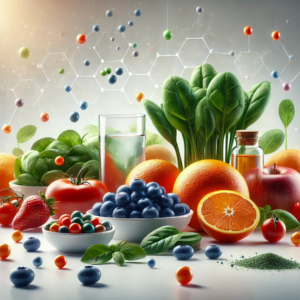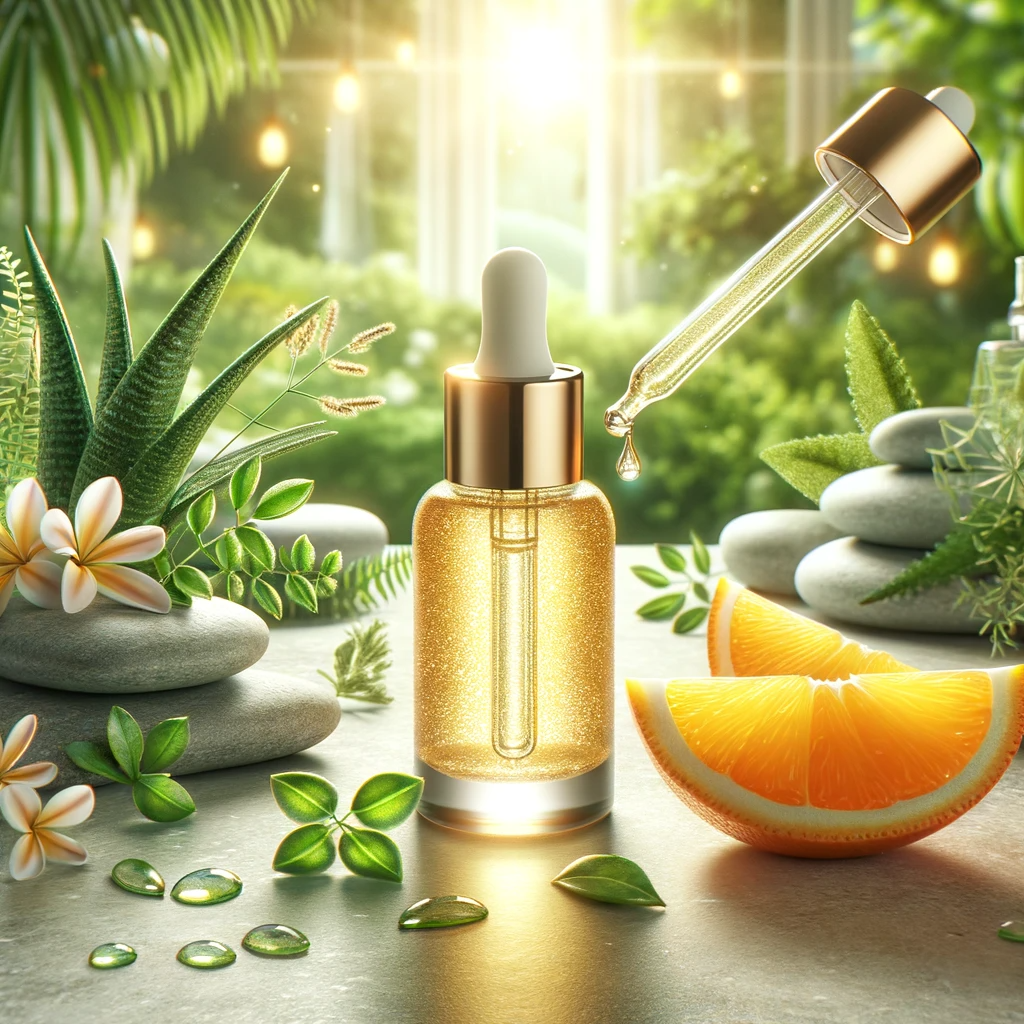What Are Antioxidants? Unlock Their Powerful Health Benefits!
Antioxidants neutralize free radicals, protecting the skin and body from oxidative stress. This kind of stress can lead to cell damage inflammation, and accelerate the aging process.

Expanded Explanation
Antioxidants are vital in maintaining overall skin health and a youthful appearance. Unstable molecules called free radicals can damage cells, leading to premature aging, inflammation, and other skin issues. These harmful molecules can be found in environmental pollutants, cigarette smoke, and UV radiation.
Therefore, it’s crucial to shield your skin with sunscreen, consume a diet rich in antioxidants, and dodge harmful substances. These nutrients fight the detrimental effects of environmental stressors. Commonly found in fruits, vegetables, and some skincare products, they offer essential protection for skin health.
Types of Antioxidants
Many skincare products feature key ingredients known for skin benefits, such as common antioxidants. These include:
- Vitamin C: Helps brighten the skin, reduce hyperpigmentation, and stimulate collagen production.
- Vitamin E: The skin is nourished and protected from environmental stressors, and this product aids skin healing.
- Niacinamide: Improves skin elasticity, reduces redness and inflammation, and minimizes the appearance of pores.
Antioxidants in Skincare
Incorporating antioxidants into your skincare routine can have multiple benefits, such as:
- It is essential to shield your skin from harmful environmental factors such as pollution and UV radiation.
- We are reducing inflammation, and redness can lead to skin conditions like acne and rosacea.
- We improve skin texture and tone, resulting in a more youthful and radiant appearance.
Examples
Example 1: Applying a vitamin C serum in the morning to brighten and protect the skin from free radical damage.
Example 2: Using a niacinamide-infused night cream improves skin elasticity and reduces redness.
Related Terms
Free Radicals: Free radicals, unstable molecules with unpaired electrons, are highly reactive and can damage cells and tissues, including skin. These molecules are naturally produced in the body during metabolic processes.
Still, they can also result from external factors like pollution, UV radiation, and stress. Damage from free radicals can lead to premature aging, inflammation, and other skin issues, highlighting the crucial role of antioxidants in neutralizing free radicals and preventing the associated damage.
Vitamin C: Vitamin C, known as ascorbic acid, is a water-soluble and essential nutrient vital for various bodily functions and overall health. It is crucial in collagen synthesis, immune function, and antioxidant activity.
The human body cannot produce vitamin C, so it must be obtained through diet or supplements. Fruits and vegetables, such as oranges, strawberries, and bell peppers, are rich sources.
Visual and Product Aids on Amazon
External Resources
Antioxidants and Skin Care: An insightful article from American Medical News Today highlights the role of antioxidants in preventing or slowing skin aging and cell damage. It highlights that one can ingest these beneficial compounds through food and supplements or apply them through skincare products.
It highlights several antioxidants beneficial for skin care, including vitamins C and E, ferulic acid, resveratrol, bakuchiol, niacinamide, and green tea.
The Role of Antioxidants in Skin Care: A scientific review from PubMed, titled “The Role of Antioxidants in Skin Care,” explores how they shield the skin from oxidative stress caused by reactive oxygen species (ROS). This process, resulting in wrinkles and atypical pigmentation, is mitigated by neutralizing ROS.
The article underscores their effectiveness in managing symptoms of photo-induced skin aging. The review provides insights into the mechanisms of ROS generation and elimination in the body, the effects of ROS on the skin, and the impact of various antioxidants on skin health, mainly focusing on skin aging.
Related Articles
7 Antioxidant Foods for Glowing Skin: The article “7 Antioxidant Foods For Glowing Skin” on Sunny Days Go emphasizes the crucial role of certain nutrients in achieving healthy, radiant skin. These compounds protect against harmful free radicals, boost collagen production, and diminish inflammation.
The blog post emphasizes the importance of incorporating antioxidant-rich foods into one’s diet to enhance skin health, and it delves into seven specific foods that are key for maintaining a youthful glow.
How to Choose the Right Antioxidant Serum for Your Skin Type: The article “How to Choose the Right Antioxidant Serum for Your Skin Type” from Sunny Days Go focuses on selecting suitable serum for specific skin types. It guides readers through identifying their skin type and the benefits of these serums.
It advises on choosing the most suitable product. The conclusion highlights the impact of the right serum in improving skin health and enhancing radiance.

